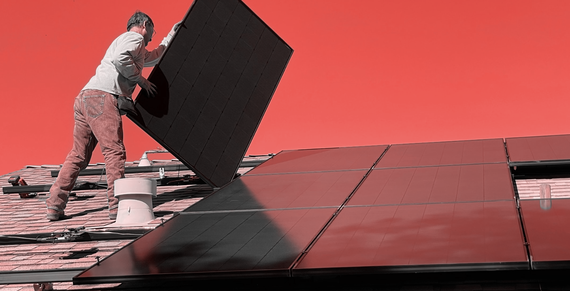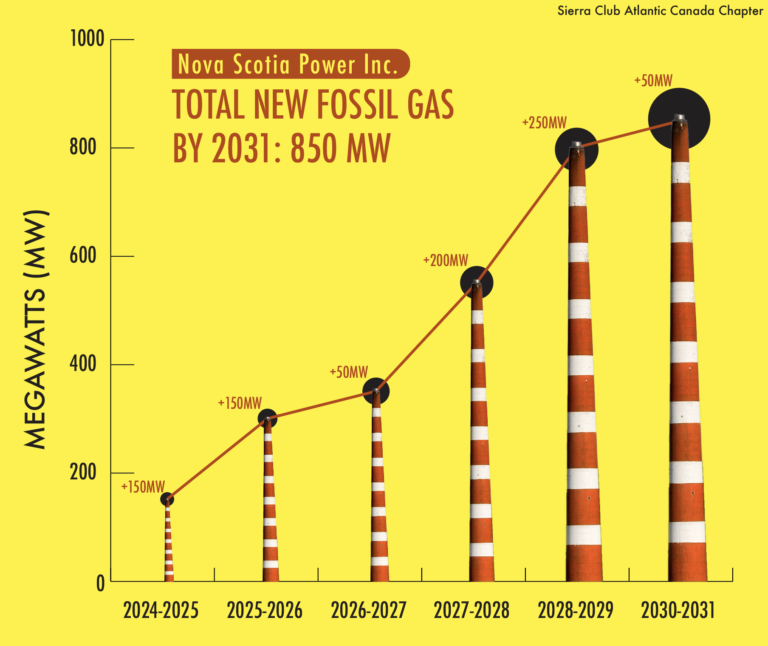Nova Scotia Power Inc and its parent company Emera Inc have crossed a line—the line of decency and common sense.
Today, we are writing to Peter Gregg, President and CEO of Nova Scotia Power Inc, and Scott Balfour, President and CEO of Emera Inc, to put them on notice that:
- We will not tolerate their corporate cash grab, which threatens the affordability of the essential service of electricity.
- We will resist the corporation’s attempts to obstruct the ability of Nova Scotians to accelerate the transition to clean renewable energy.
- We are aware that Nova Scotia Power is the largest emitter of greenhouse gasses in the province, and we will no longer accept their excuses and delays in shutting down coal and other fossil fuel plants.
- We reject their gaslighting of homeowners who invest in solar energy production and their efforts to sow division among the people of this province.
- We will not allow them to bankrupt the small businesses that are the backbone of the solar industry in Nova Scotia.
- We cannot accept putting shareholder profits before the needs of the environment and our communities.
- We do not accept characterizing the transition away from coal and other fossil fuels as a financial burden that Nova Scotia Power and Emera Inc cannot afford. We know that Scott Balfour received a million dollar raise in 2020, bringing his total yearly compensation to nearly $8 million dollars.
- We will not allow them to rob future generations of a liveable world for the sake of a few million—or even billion—bucks.
We urge all Nova Scotians to join us in sending this message to them as well. Please click below to sign on to this statement and send it directly to Peter Gregg and Scott Balfour.

If you didn’t hear about Nova Scotia Power’s announcement last week, we unpack the mayhem and slippery slope below:
Last week, Nova Scotia Power announced it was applying to the Nova Scotia Utility and Review Board (UARB) to raise residential electricity rates by 10 percent over 3 years. For small businesses, the rate increase would be even higher.
The corporation also unveiled its plan to add a monthly system access fee for homeowners and businesses that install solar panels and supply clean renewable energy to the electricity grid. This fee—$8 per kilowatt of installed capacity per month—could double the amount of time it would take many homeowners to pay off their solar installation loans and recover any real savings on electricity.*
In a nutshell, Nova Scotia Power delivered a death blow to the solar industry in the province and set off a panic that had solar customers cancelling their contracts with installers before the February 1 deadline that NSP imposed.
Peter Gregg, the CEO of Nova Scotia Power, said the decision to add the fee was about “fairness” for customers who do not have solar panel installations—a justification based on disinformation and half truths.
Most homeowners pay $20,000 to $25,000 to have solar panels installed. This cost increases if you first have to replace your roof before installing panels that will remain on it for decades. These estimates also factor in previous provincial government rebates, which were cut in half just a few weeks ago. Before NSP’s announcement, homeowners could expect it to take at least 10 years to see actual savings on their solar energy investments. This new fee would make it take much longer.
That’s if Nova Scotia Power doesn’t raise their proposed system access fee even more in a few years time.
What you may have missed in this kerfuffle is that Nova Scotia Power also announced it was further delaying the shutdown of coal. The energy utility says it will close the Trenton 5 coal-fired unit in 2024, a year later than planned. All of NSP’s 8 coal-fired units must be phased out by 2030. How is it that the corporation is only getting started in 2024?
Peter Gregg and NSP’s Chief Operating Officer Mark Sidebottom told Sierra Club Canada that their plan to go green involves first transitioning to fracked gas (aka natural gas), converting at least 2 of its coal-fired units to fracked gas, and building a brand new fracked gas plant somewhere between Halifax and Cape Breton. Fracked gas is a fossil fuel that emits methane, which has an impact on global heating that’s 84 times greater than carbon dioxide in the short-term—years that are critical in averting climate and ecological tipping points.
So, we have a big problem on our hands. But at least it’s now abundantly clear where Nova Scotia Power Inc stands: shareholder profits come first, and the health and wellbeing of our communities—and our planet—take a back seat.
* For more on the proposed system access fee and the impact it would have, see this article by Alexander Ross and Samantha Shannon: Nova Scotia Power: single-handedly reversing our province’s solar progress
—From the Beyond Coal Atlantic team, Sierra Club Canada–Atlantic Chapter




